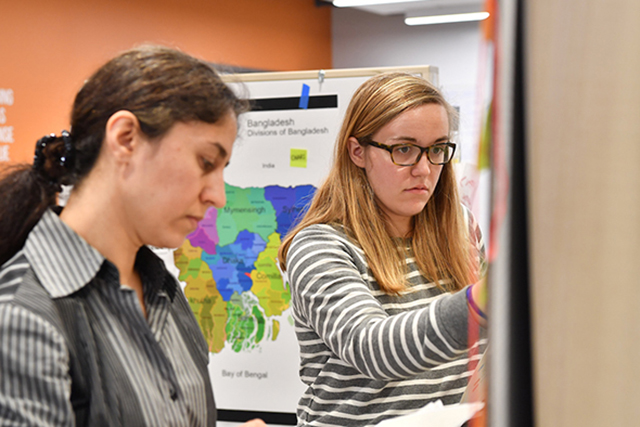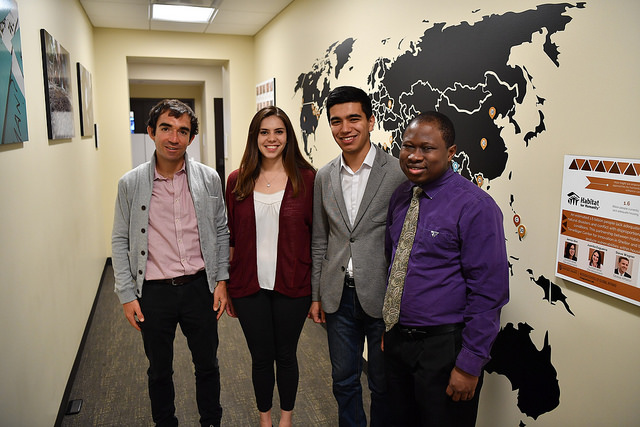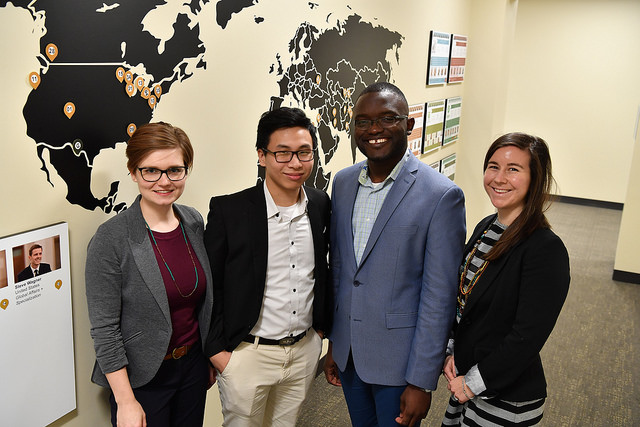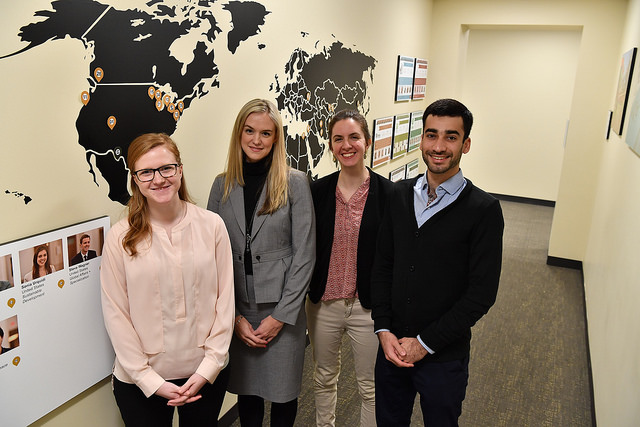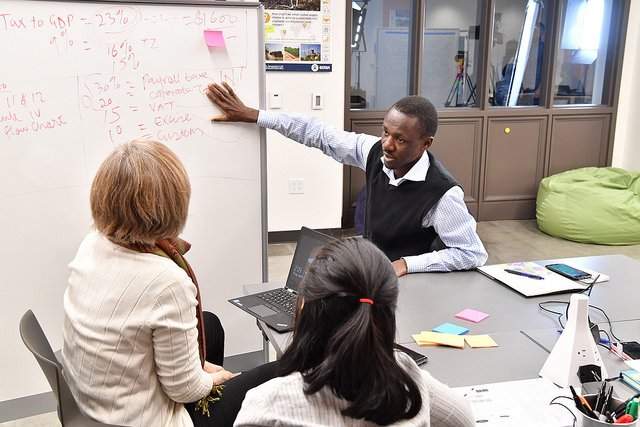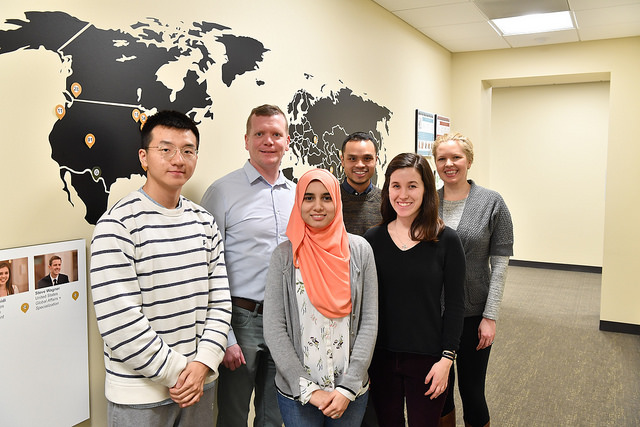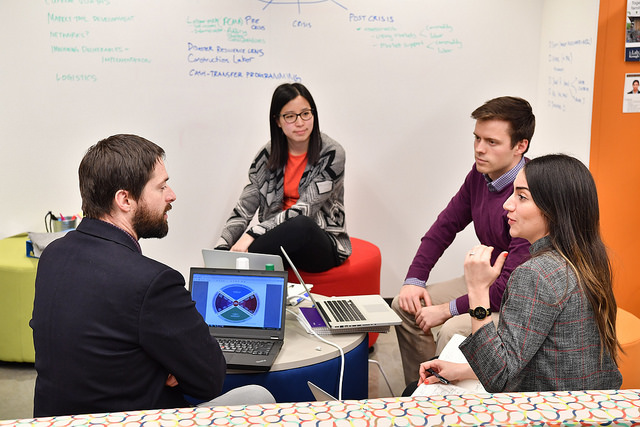Integration Lab launches international student research projects
May 8, 2018 — The Integration Lab at Notre Dame’s Keough School of Global Affairs is sending teams of master of global affairs students to 13 countries this summer to research and help address a range of pressing global challenges.
By partnering with high-impact global organizations, the Integration Lab (i-Lab) enables student teams to co-design international research projects with seasoned professionals. Each project aims to create innovative solutions to complex issues related to migration, climate change, educational inequality, or access to health care.
The students’ international travel comes at the conclusion of their first year of intensive coursework in the Master of Global Affairs program.
Global partner representatives traveled to Notre Dame during the spring semester to engage with student teams and advance project strategies.
“The opportunity for the i-Lab teams to meet in person with a representative from their organization before traveling to the field was invaluable,” said Tracy Kijewski-Correa, co-director of the i-Lab.
The partner visit also generated enthusiasm among master’s students, said i-Lab co-director Steve Reifenberg.
“There are few graduate programs we know that provide the opportunity to meet with their partners in this extended fashion before a field placement,” Reifenberg said. “It’s well worth the investment.”
Kwame Owino, chief executive officer at the Institute for Economic Affairs, a policy think tank in Nairobi, Kenya, was among the global partners who traveled to Notre Dame.
“My first impression was that we’ll be working with a group that’s very diverse, both in terms of countries and professional backgrounds,” Owino said. “My visit has confirmed that the Keough School is deliberate about understanding global affairs from a multidisciplinary perspective. The students ask interesting questions and are able to draw from many disciplines in sharing their ideas.”
After returning to Notre Dame to analyze and their findings during their second year of study, students present final recommendations to their organizational partner. Students will be sharing their experiences through a blog.
Locations, projects, and partner organizations include:
